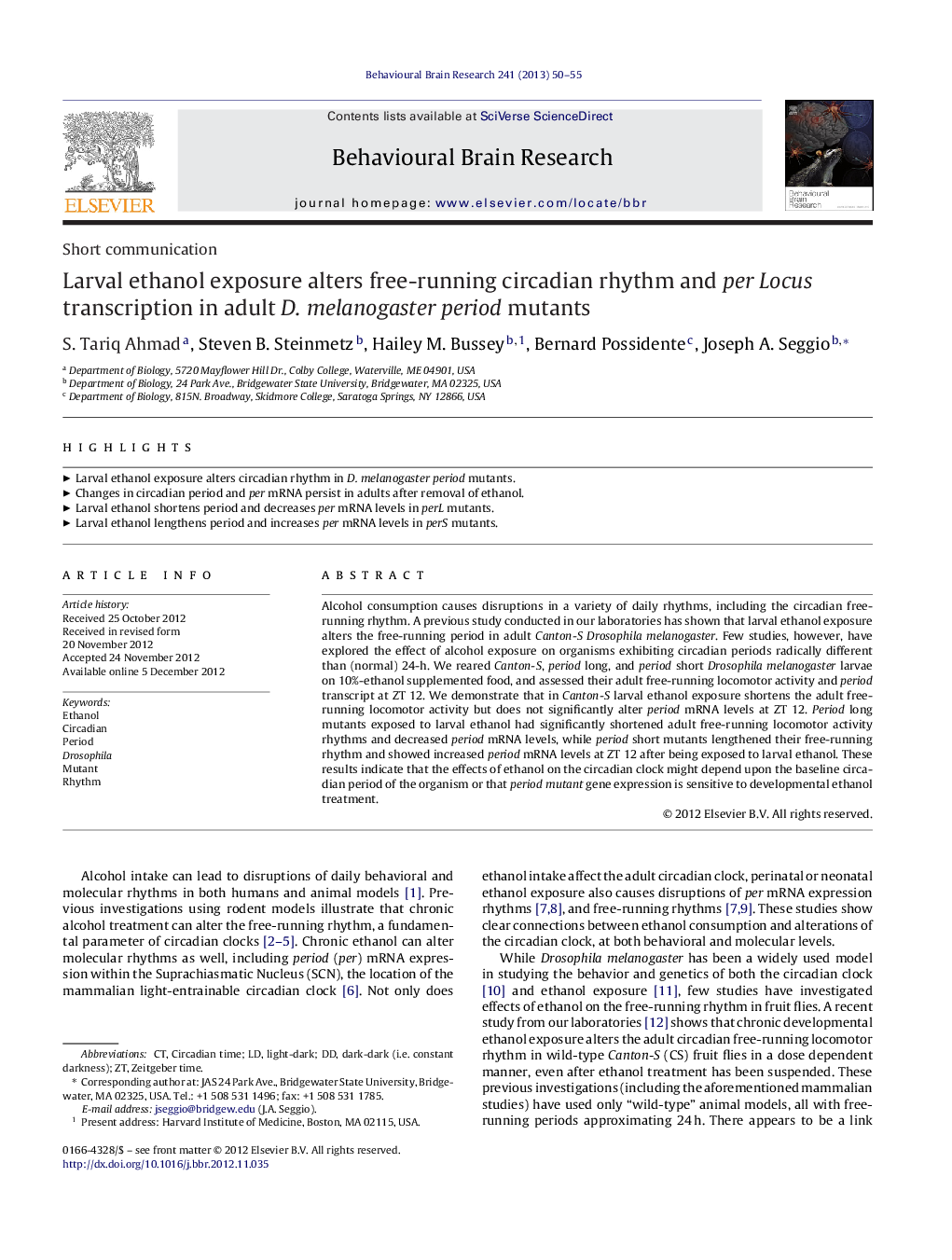| Article ID | Journal | Published Year | Pages | File Type |
|---|---|---|---|---|
| 6259224 | Behavioural Brain Research | 2013 | 6 Pages |
Alcohol consumption causes disruptions in a variety of daily rhythms, including the circadian free-running rhythm. A previous study conducted in our laboratories has shown that larval ethanol exposure alters the free-running period in adult Canton-S Drosophila melanogaster. Few studies, however, have explored the effect of alcohol exposure on organisms exhibiting circadian periods radically different than (normal) 24-h. We reared Canton-S, period long, and period short Drosophila melanogaster larvae on 10%-ethanol supplemented food, and assessed their adult free-running locomotor activity and period transcript at ZT 12. We demonstrate that in Canton-S larval ethanol exposure shortens the adult free-running locomotor activity but does not significantly alter period mRNA levels at ZT 12. Period long mutants exposed to larval ethanol had significantly shortened adult free-running locomotor activity rhythms and decreased period mRNA levels, while period short mutants lengthened their free-running rhythm and showed increased period mRNA levels at ZT 12 after being exposed to larval ethanol. These results indicate that the effects of ethanol on the circadian clock might depend upon the baseline circadian period of the organism or that period mutant gene expression is sensitive to developmental ethanol treatment.
⺠Larval ethanol exposure alters circadian rhythm in D. melanogaster period mutants. ⺠Changes in circadian period and per mRNA persist in adults after removal of ethanol. ⺠Larval ethanol shortens period and decreases per mRNA levels in perL mutants. ⺠Larval ethanol lengthens period and increases per mRNA levels in perS mutants.
